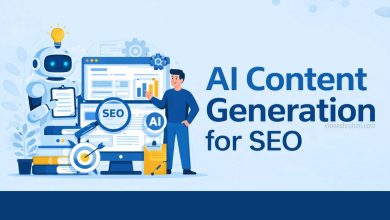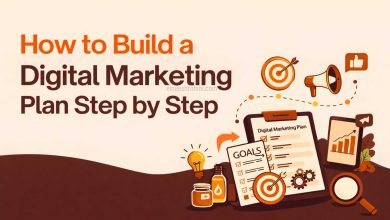What is SEO Marketing? : Comprehensive Guide 2024
What is SEO Marketing : Search Engine Optimization (SEO) marketing is a critical digital marketing strategy aimed at enhancing the visibility of websites in search engine results pages (SERPs). By optimizing websites for search engines like Google, Bing, or Yahoo, businesses can attract more organic traffic, improve brand awareness, and ultimately increase revenue.
Table of Contents
This essay explores the fundamentals of SEO marketing, its importance, strategies, challenges, and future trends, providing a comprehensive understanding of its role in the digital marketing ecosystem.
The Fundamentals of SEO Marketing

1. Definition of SEO
SEO is the practice of improving a website’s content, structure, and technical elements to rank higher in SERPs.
Also Read : Low-Budget Digital Marketing Hacks for MSMEs
The process involves understanding how search engines work, the criteria they use to rank pages, and what users are searching for.
2. Why SEO Matters
Search engines are a gateway to the internet. Billions of searches are conducted daily, and most users click on results that appear on the first page of SERPs. SEO ensures that a business’s website is visible to its target audience, providing opportunities for engagement and conversion..
3. How Search Engines Work
Search engines use algorithms to determine the relevance and quality of web pages. These algorithms consider factors like keywords, site structure, backlinks, and user engagement metrics. Key steps in this process include:
- Crawling: Search engines use bots to discover new and updated content on the web.
- Indexing: The crawled pages are stored in a database, ready to be retrieved when a user performs a search.
- Ranking: Based on the relevance of content and other factors, search engines rank pages in response to a search query.
The Pillars of SEO Marketing
SEO marketing is built on three main pillars: on-page SEO, off-page SEO, and technical SEO. Each plays a vital role in optimizing a website.
1. On-Page SEO
On-page SEO involves optimizing individual pages to rank higher in SERPs. It focuses on the content and HTML source code of a page. Key aspects include:
- Keyword Research and Usage: Identifying and using relevant keywords strategically in titles, headings, meta descriptions, and body content.
- High-Quality Content: Creating engaging, informative, and valuable content that addresses user intent.
- Internal Linking: Linking related pages within the website to enhance navigation and distribute link equity.
- Mobile Friendliness: Ensuring that websites are responsive and provide a seamless experience across devices.
2. Off-Page SEO
Off-page SEO refers to activities that improve a site’s reputation and authority, primarily through link building. Key strategies include:
- Backlinking: Earning high-quality links from reputable websites to signal trustworthiness.
- Social Signals: Sharing and promoting content on social media platforms to increase reach.
- Guest Blogging: Writing articles for other websites to earn backlinks and expand visibility.
3. Technical SEO
Technical SEO focuses on the backend structure of a website to ensure it meets search engine requirements. Key elements include:
- Website Speed: Ensuring fast page load times for better user experience.
- XML Sitemaps: Providing search engines with a roadmap of the site’s structure.
- HTTPS and Security: Using secure protocols to protect user data.
- Schema Markup: Adding structured data to improve how search engines interpret a website’s content.
Benefits of SEO Marketing

SEO marketing provides numerous advantages for businesses, both large and small:
1. Cost-Effective
Unlike paid advertising, organic traffic generated through SEO does not require ongoing costs. Once a site ranks high, it can continue to attract visitors without additional expenditure.
2. Increased Visibility and Traffic
SEO enhances a website’s ranking, making it more visible to potential customers. This increased visibility leads to higher traffic and more opportunities for conversion.
3. Better User Experience
By optimizing a site for SEO, businesses inadvertently improve user experience. Fast loading times, mobile-friendly designs, and easy navigation benefit users and search engines alike.
4. Long-Term Results
While SEO requires time and effort initially, its results are sustainable. A well-optimized website can maintain its ranking and traffic for an extended period.
5. Brand Credibility
Websites that rank high in search results are perceived as more credible and trustworthy. This builds brand authority and customer loyalty.
Key SEO Marketing Strategies
To succeed in SEO marketing, businesses must implement effective strategies tailored to their goals. Here are some proven approaches:
1. Keyword Research
Understanding what users are searching for is fundamental. Tools like Google Keyword Planner and SEMrush help identify high-volume, low-competition keywords.
2. Content Marketing
Creating high-quality content that resonates with the target audience is critical. Blog posts, videos, infographics, and case studies can drive traffic and engagement.
3. Link Building
Earning links from reputable websites is a cornerstone of SEO. This can be achieved through guest blogging, creating shareable content, and forming partnerships.
4. Local SEO
For businesses with a physical presence, local SEO is essential. Optimizing for “near me” searches, creating Google My Business profiles, and garnering positive reviews can drive local traffic.
5. Analytics and Monitoring
Tracking performance metrics such as organic traffic, bounce rates, and conversions allows businesses to refine their strategies.
Challenges in SEO Marketing
While SEO offers numerous benefits, it also presents challenges:
1. Constant Algorithm Changes
Search engines frequently update their algorithms, requiring marketers to stay informed and adapt their strategies.
2. High Competition
Popular keywords often have intense competition, making it difficult for smaller businesses to rank.
3. Time-Consuming
SEO is not an overnight process; it requires consistent effort and patience to see results.
4. Technical Complexity
Technical SEO can be challenging, particularly for those without a background in web development.
The Future of SEO Marketing

As technology evolves, so does the landscape of SEO. Emerging trends include:
1. Voice Search Optimization
With the rise of voice-activated devices, optimizing for conversational queries and long-tail keywords is becoming crucial.
2. AI and Machine Learning
Search engines increasingly rely on AI to understand user intent. Marketers must focus on creating content that aligns with user needs.
3. Video SEO
As video content becomes more popular, optimizing for platforms like YouTube and embedding videos on websites is essential.
4. Core Web Vitals
Google’s emphasis on metrics like page speed, interactivity, and visual stability means businesses must prioritize user experience.
5. Sustainability and Ethics
Users and search engines are favoring sustainable and ethical practices, making transparency and authenticity critical for SEO success.
What is SEO Marketing – Conclusion :
SEO marketing is an indispensable tool for businesses looking to thrive in the digital age. By understanding and implementing its principles, businesses can enhance their visibility, attract targeted traffic, and achieve their goals.
Also Read : Ecommerce Website With 100 Products
Although challenges exist, the evolving nature of SEO ensures that there are always opportunities for innovation and growth. Whether through on-page optimization, off-page strategies, or technical enhancements, SEO remains a powerful driver of success in the online marketplace.
Keywords : What is SEO Marketing – What is SEO Marketing 2024 – What is SEO Marketing 2025



